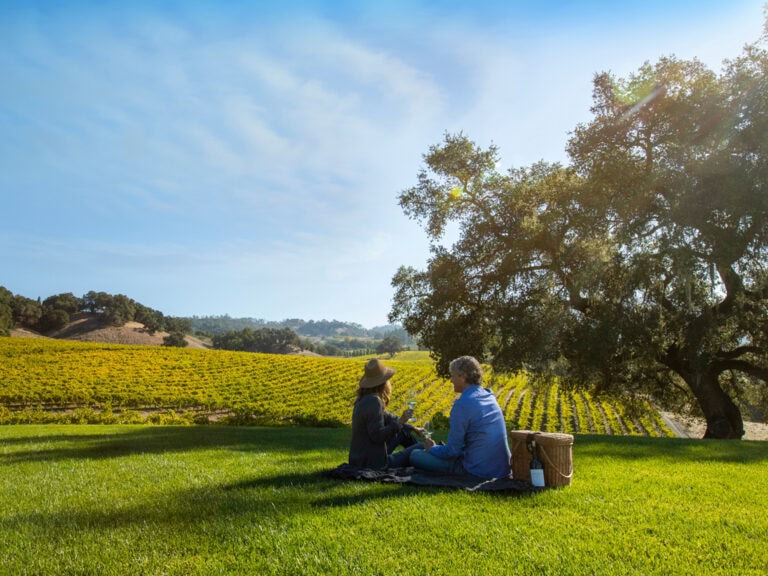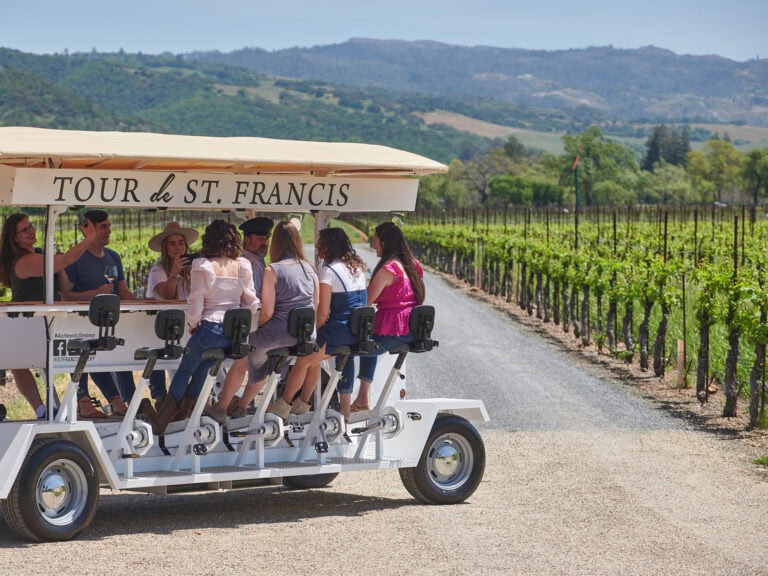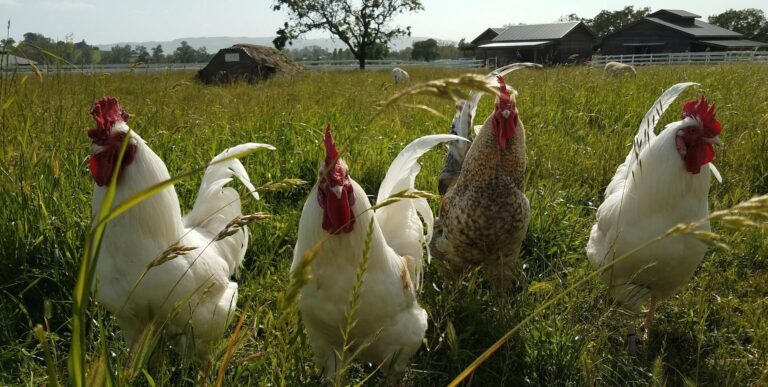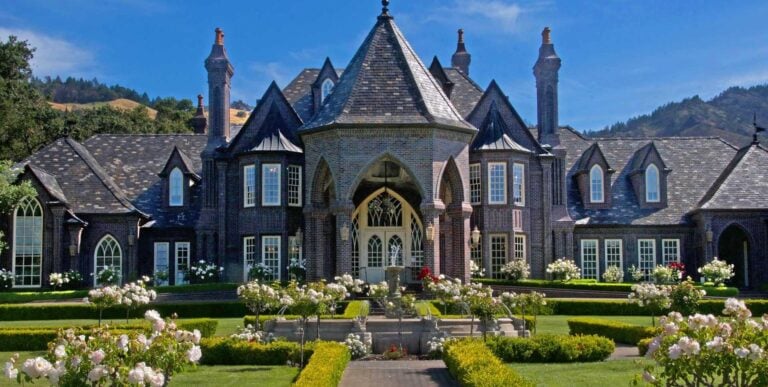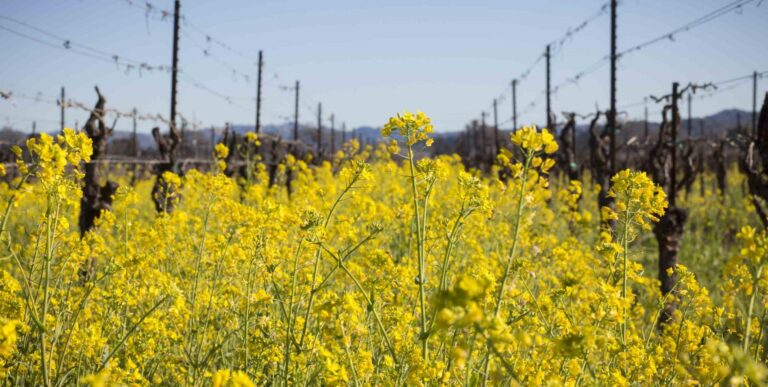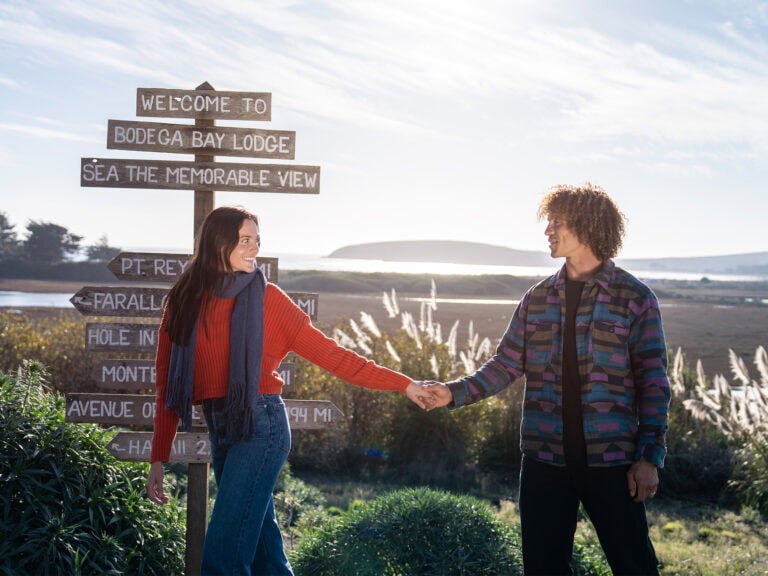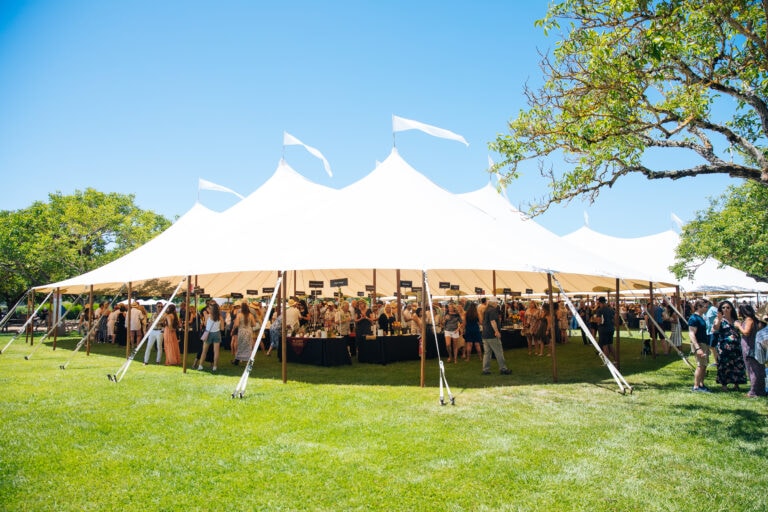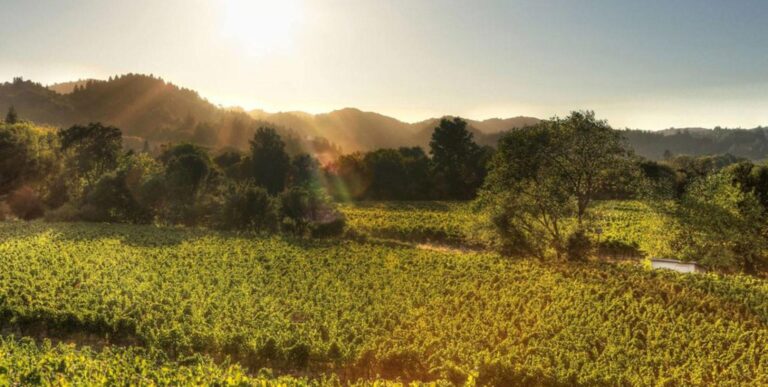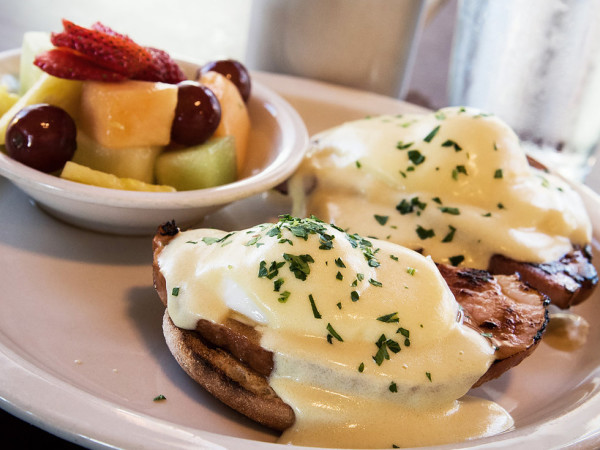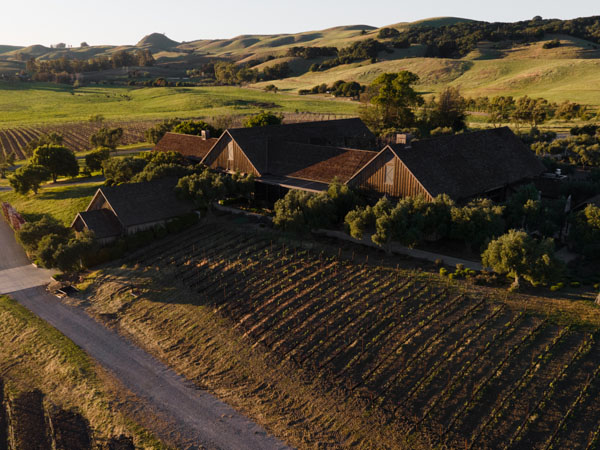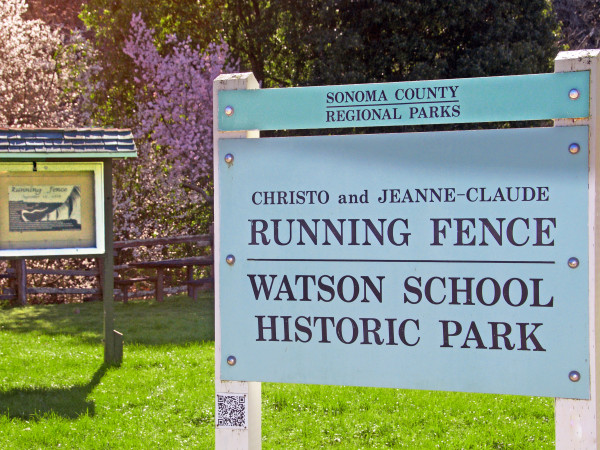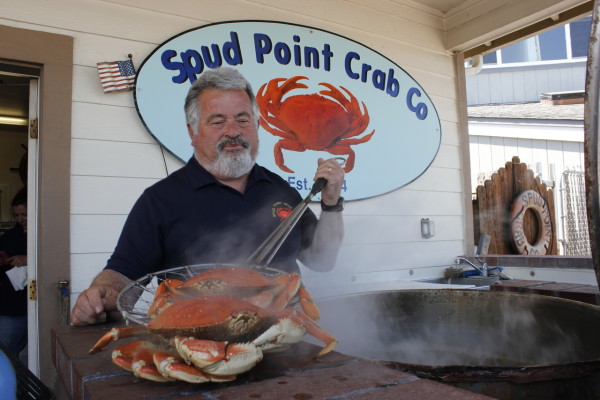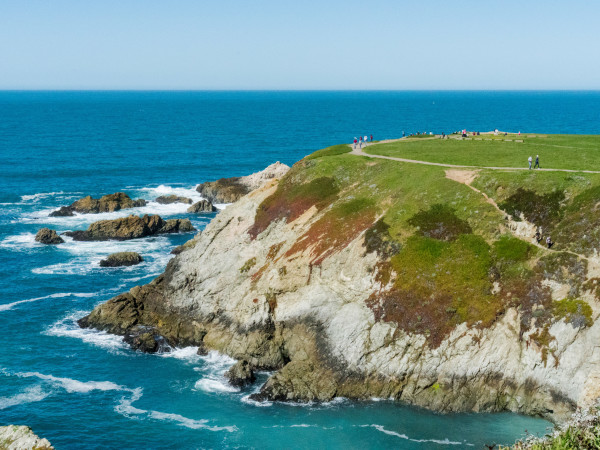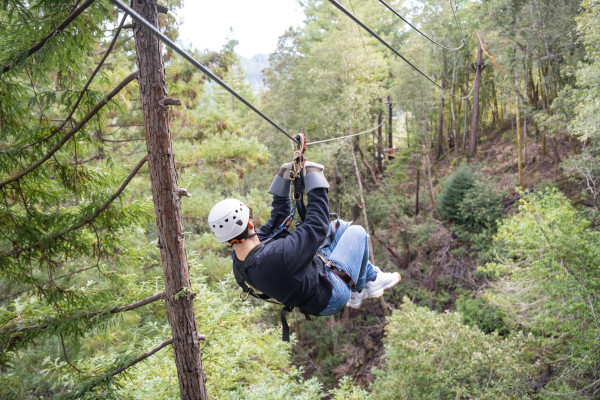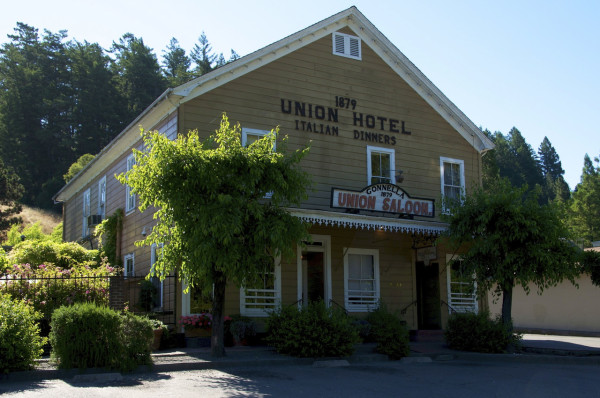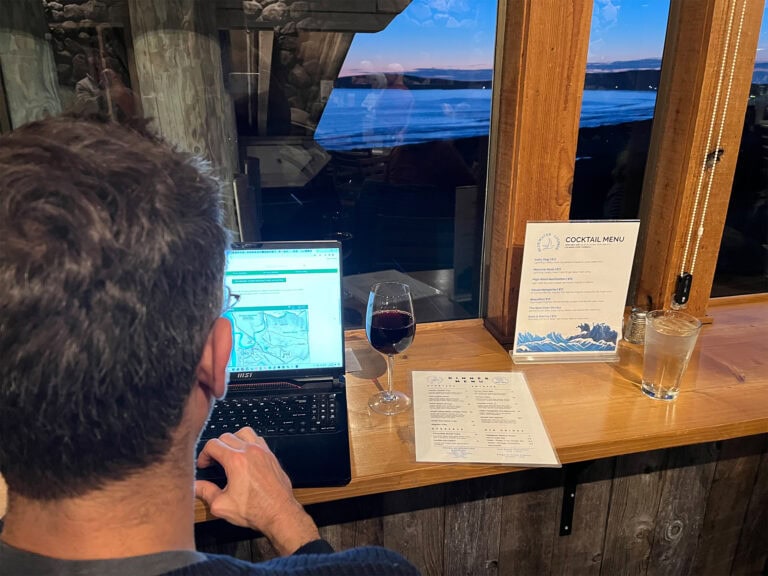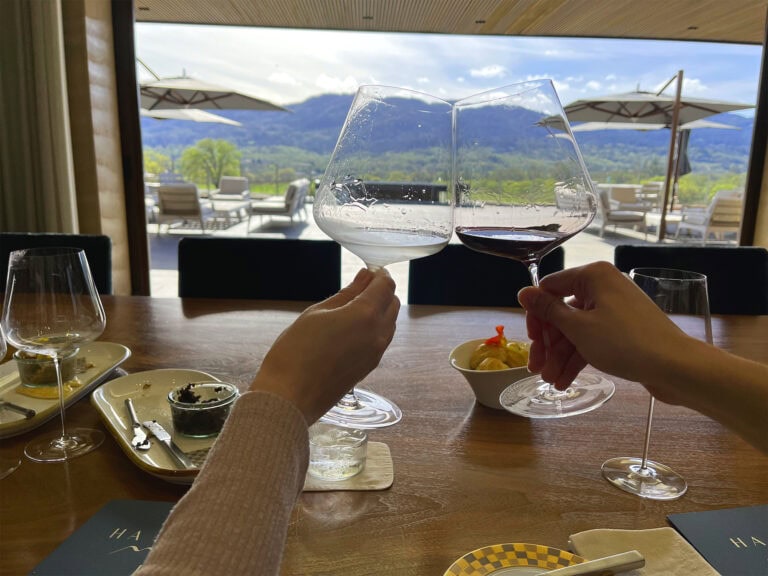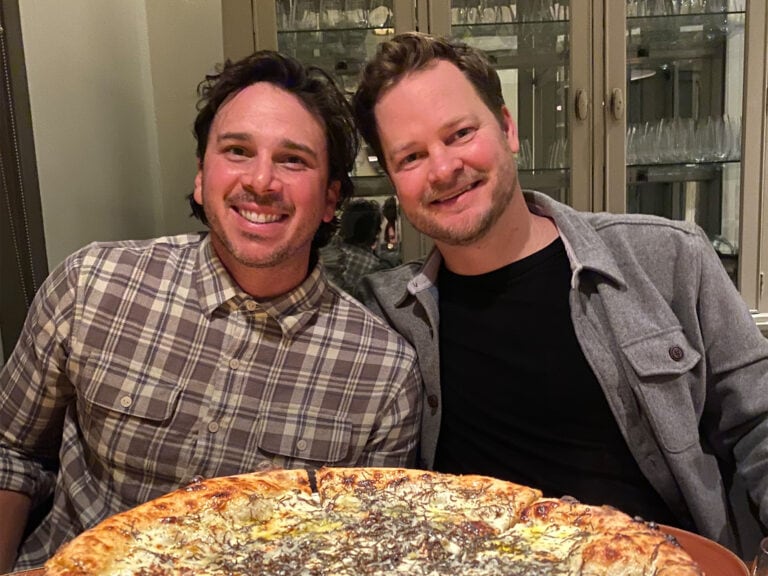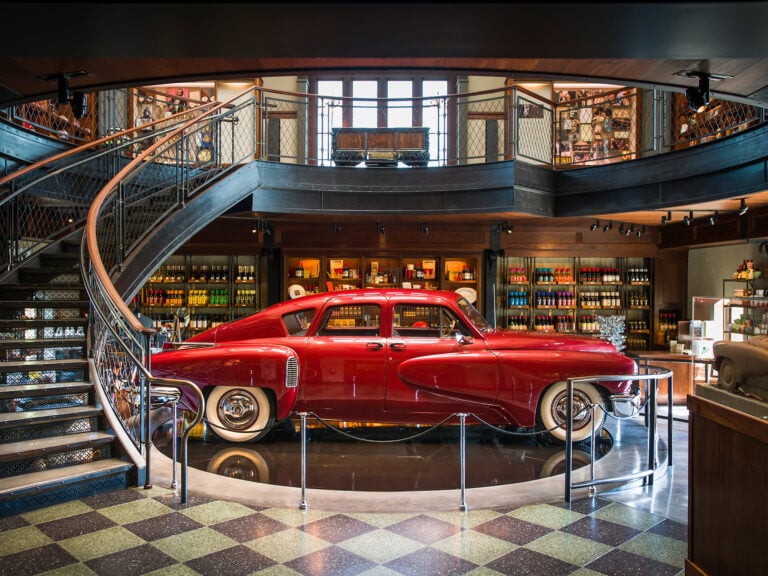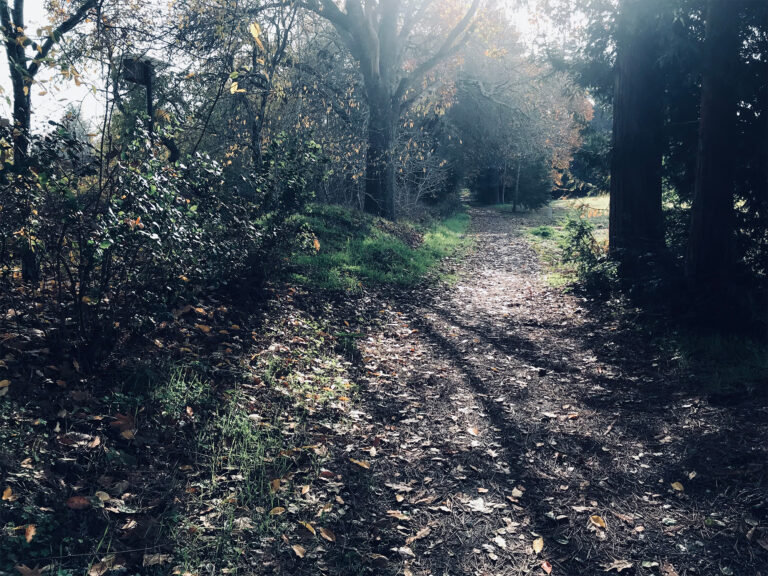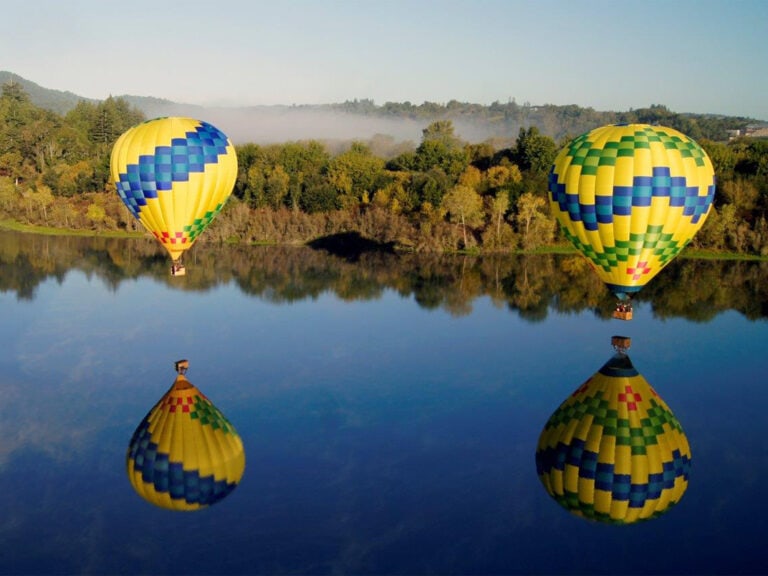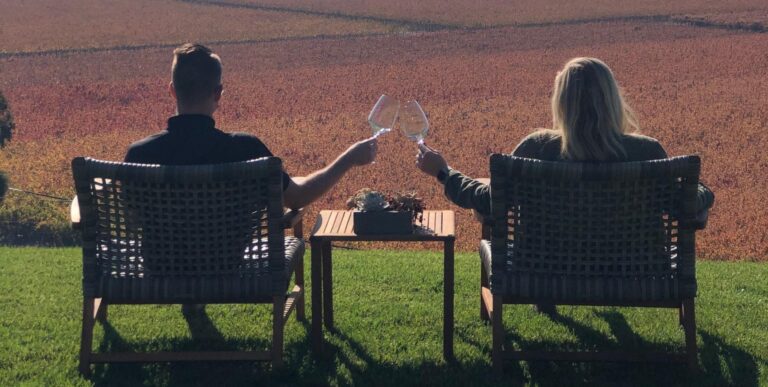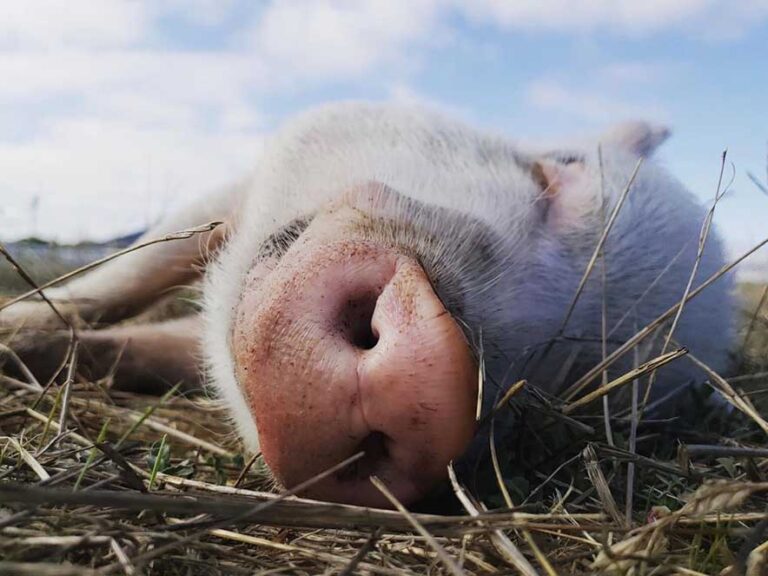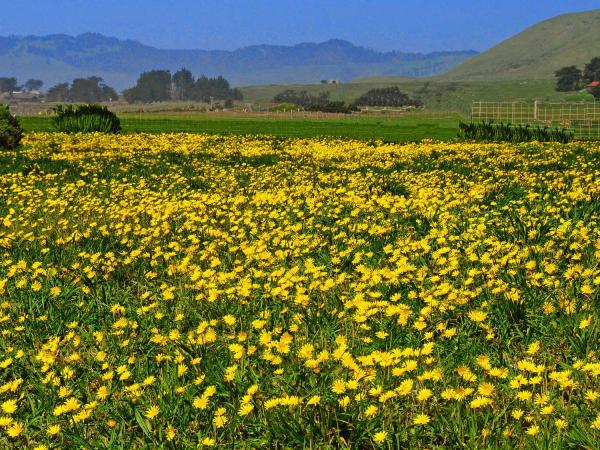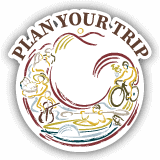Itinerary: Discover Hidden Gems in Sonoma County
Make your way to Sonoma County for this two-day itinerary that introduces you locally beloved treasures and experiences that were, until now, little known to visitors. Discover Sonoma County’s secret gardens, small museums and cafes, and boutique wineries—and relax while leaving the driving to local experts.
Day One
Find Hidden Treasures in Santa Rosa, Sonoma, Carneros, and Petaluma
Start your day in Santa Rosa with a bountiful breakfast at one of three “side” restaurants, all within a short distance of the route you’ll travel. All three have legions of loyal Sonoma County fans.
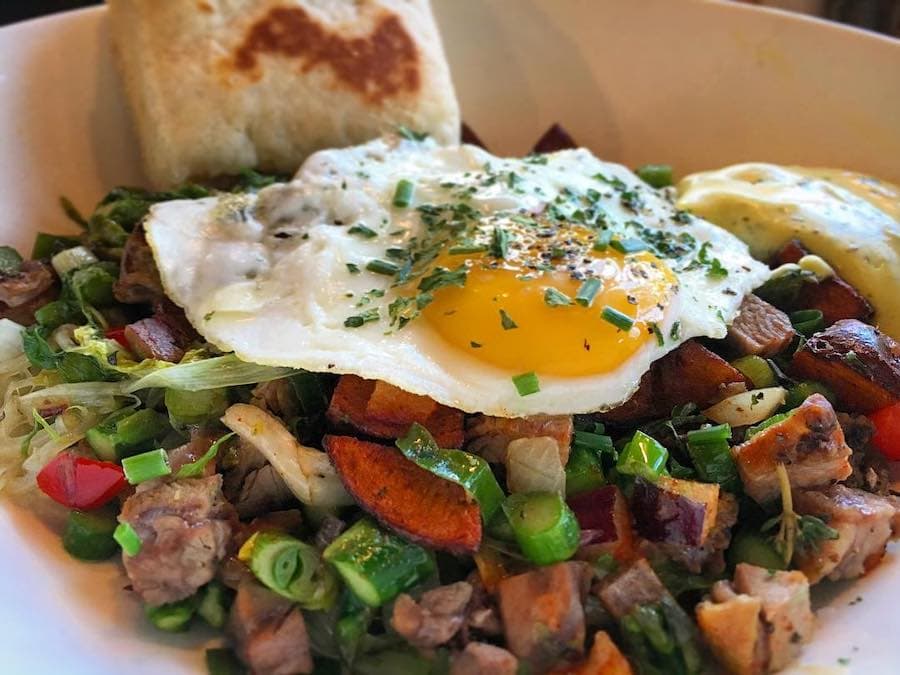
At Jeffrey’s Hillside Café (2901 Fourth St.), chef/owner Jeffrey Madura — a graduate of California Culinary Academy — uses a bevy of local purveyors to create breakfasts ranging from your favorite omelet to rare treats such as corned duck hash with roasted pears.
The menu at Dierk’s Parkside Café (404 Santa Rosa Ave.) is chock-full of tasty morning delights, such as Grandma Dierk’s Pull-A-Parts, which are essentially large, shareable, hole-free donuts, dusted with cinnamon and sugar.
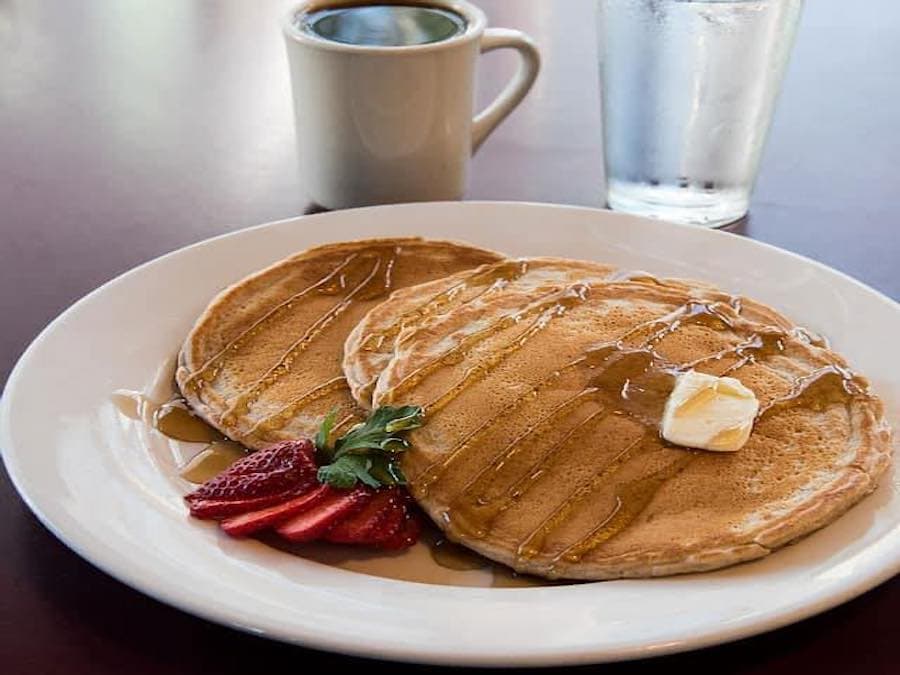
And Hank’s Creekside Restaurant (2800 Fourth St.) offers a large, scrumptious menu that includes traditional breakfast favorites (any-style eggs and omelets, hot cakes) along with blintzes, chicken fried steak, lox and cream cheese and lots more.
Once sated, follow Farmers Lane to Highway 12 East (toward Sonoma), and in approximately nine miles you’ll enter the village of Kenwood.
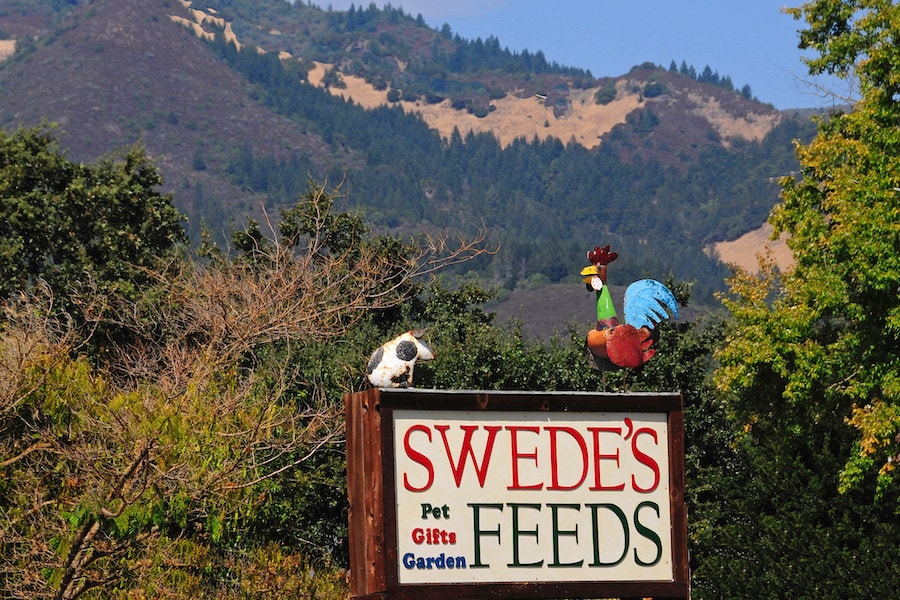
Look on the left for Swede’s Feeds (9140 Sonoma Highway, Kenwood), with its colorful outdoor collection of ceramic pots and artisan sculpture. Most items here are unique and useful additions to home and garden — including hand-crafted, multi-story birdhouses, fountains and garden stakes fashioned from old autos, machinery gears, metal signs, oil barrels and other recycled materials. Definitely worth a stop.
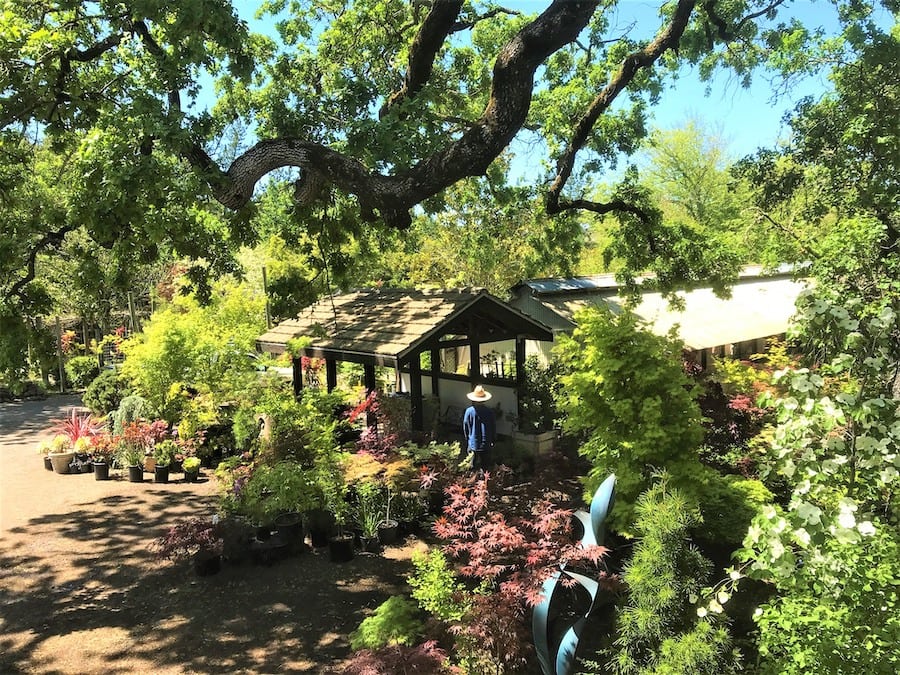
Serious gardeners will love Wildwood Nursery, just a few miles further along Highway 12 (10300 Sonoma Highway, Kenwood). It’s a peaceful five-acre paradise with 250 varieties of Japanese maples (some are quite rare), plus conifers, dogwoods, ginkgos and other trees, and outdoor sculpture by local artists.
Continue south on Highway 12 to the town of Sonoma, where the Highway makes a sharp right in front of the historic Plaza.
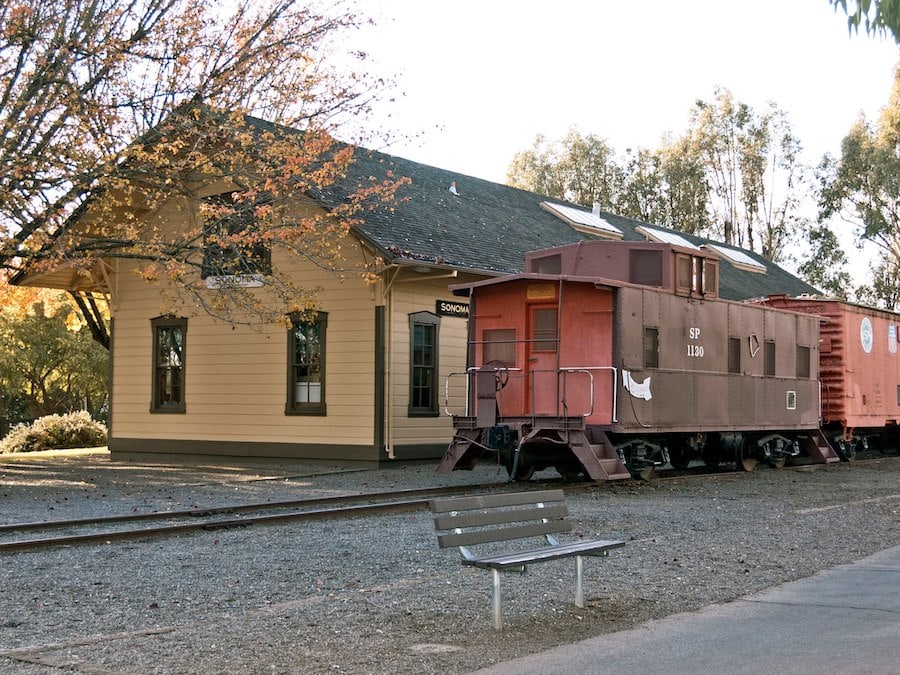
Two blocks north of said Plaza, in a former railroad depot, is the Depot Park Museum (270 First St. W., Sonoma). It’s filled with vivid displays and artifacts centering on California and, in particular, Sonoma. History buffs, this place is for you!
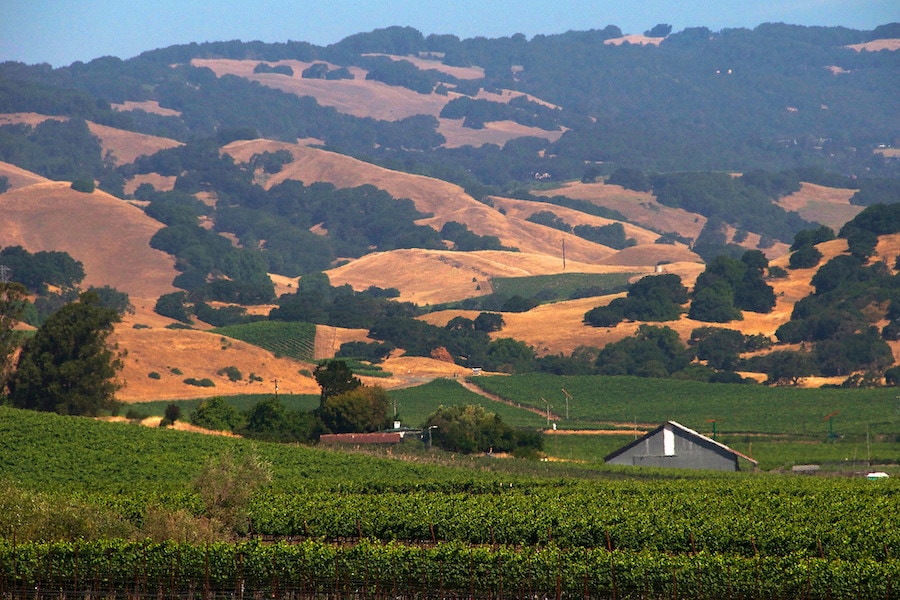
Back in the car, continue on Highway 12 for about four miles to a “T” intersection. Before you will stretch the famous Carneros wine-growing region. It’s known for cool breezes from the nearby Pacific coast and San Pablo Bay that result in superb Chardonnays, Pinot Noirs, and Syrahs. Whether you turn right or left you’ll encounter dozens of superb wineries, which you might want to research beforehand on the websites for Sonoma County Vintners and the Carneros Wine Alliance.
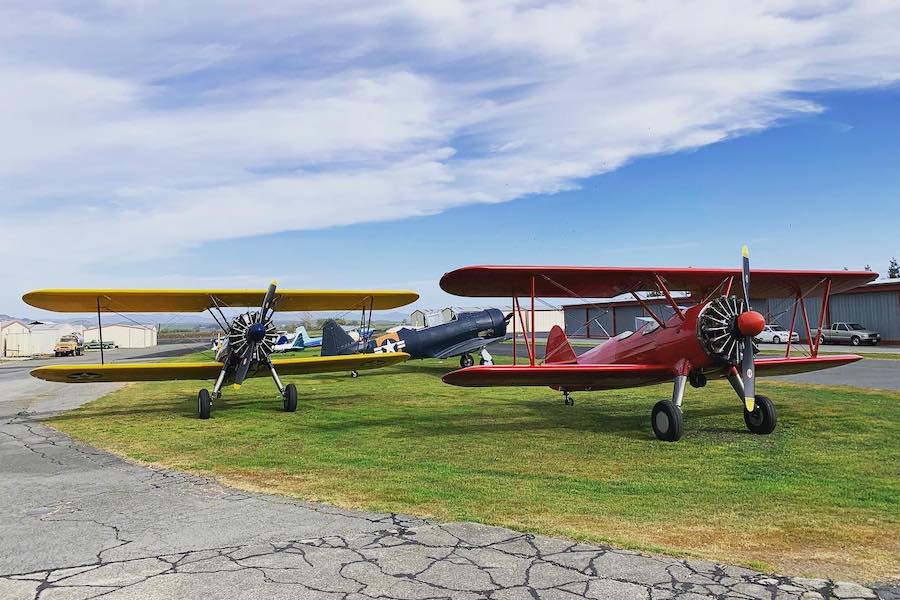
At the northern end of the Carneros region—near excellent wineries like Cline Family Cellars, Gloria Ferrer Caves & Vineyards, and Viansa Sonoma—the Sonoma Valley Airport (23980 Arnold Drive, Sonoma), is home to the Vintage Aircraft Co., which offers rides in a 1942 open cockpit biplane, a Boeing Stearman, or a WWII Warhawk or Mustang.
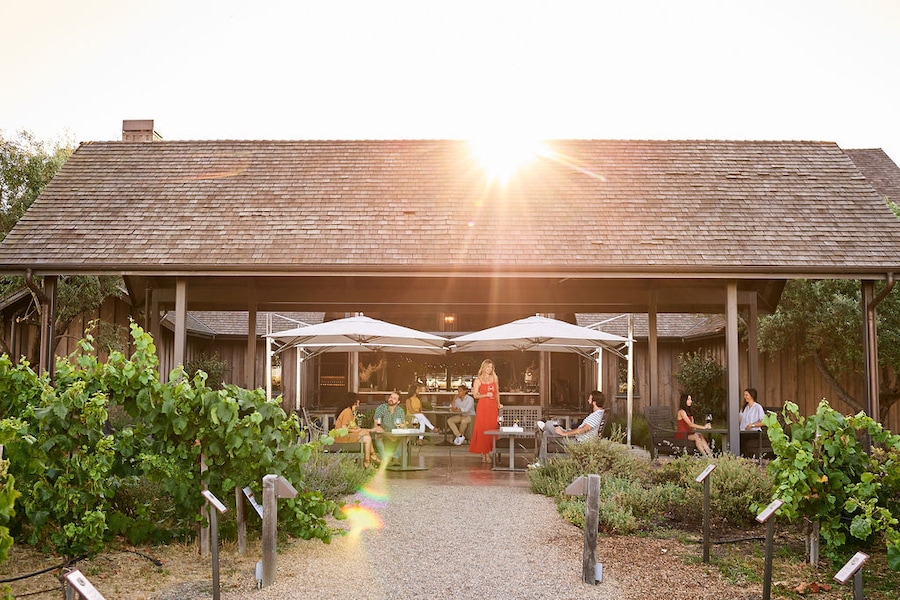
At the southern end is the particularly stylish Ram’s Gate Winery (28700 Arnold Dr., Sonoma), which sits atop a hill overlooking the splendid Carneros wetlands. For a delicious experience, book one of their beautiful pairings of both wine and food.
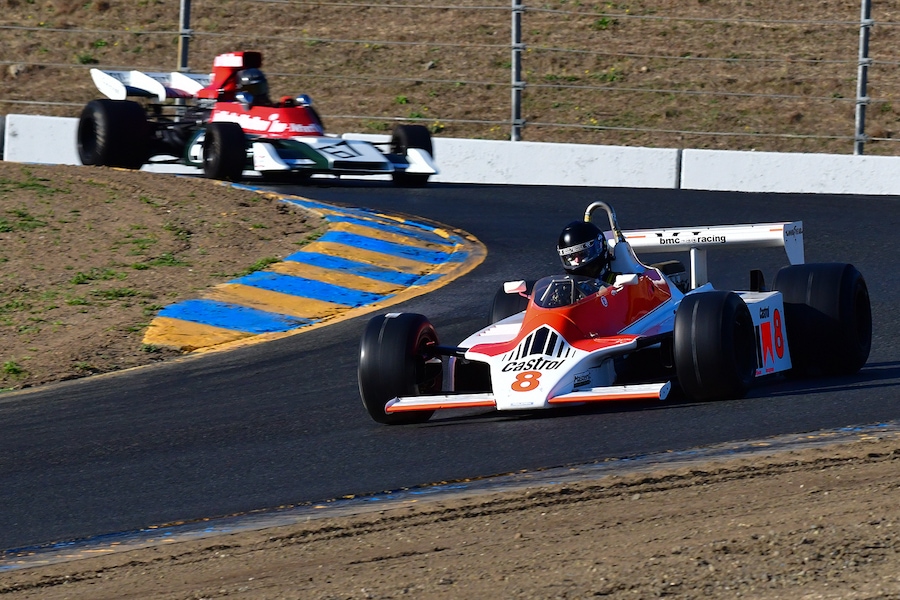
The winery is set across the highway from Sonoma Raceway, and on race days, the whine of the engines can be heard from the Ram’s Gate terrace.
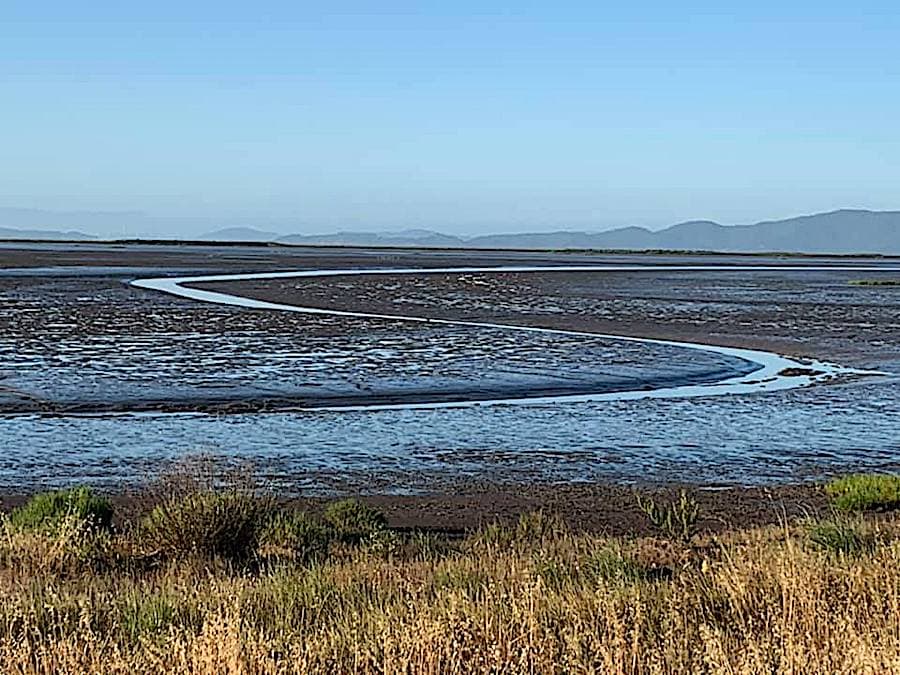
For a race-day walk on the quieter side, go for a stroll on the paved trails amongst the wetlands at the nearby San Pablo Bay National Wildlife Refuge.
Now let’s head to Petaluma. Drive south on Arnold Drive; merge west on Highway 37; head north at Highway 101. Take the Petaluma Boulevard South exit, and continue to downtown Petaluma. Settled in 1851, Petaluma is one of California’s oldest cities, filled with beautiful Victorian homes and impressive Iron Front commercial buildings.
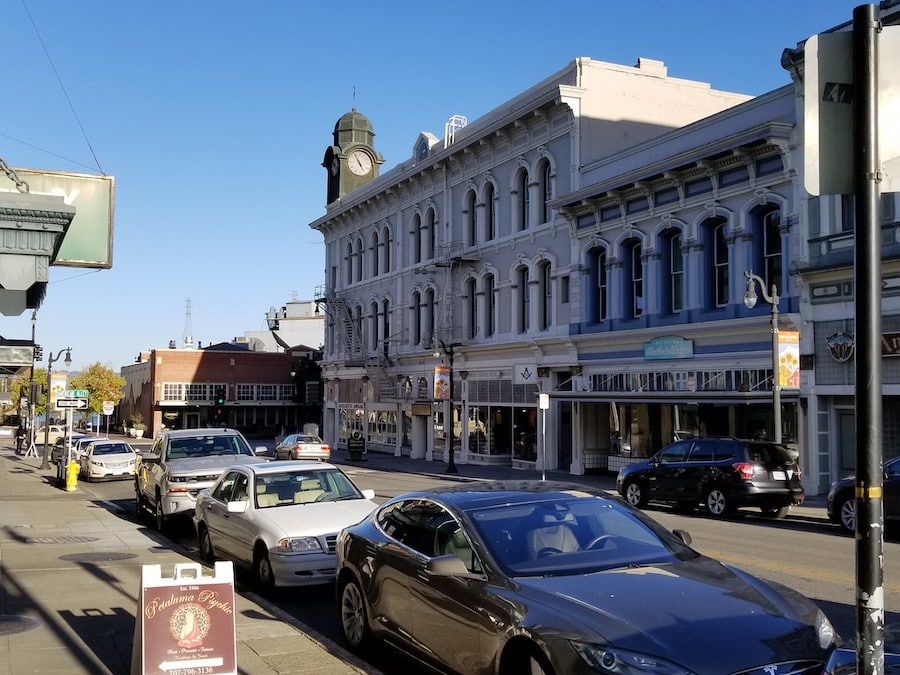
Downtown Petaluma itself is on the National Register of Historic Places. You can follow a map for a self-guided walking tour of Petaluma’s historic homes, visiting 19 of the 37 buildings on Petaluma’s Historic Resource Inventory, or the Petaluma Historical Library & Museum offers free walking tours led by costumed docents (most Saturdays, May-October).
Petaluma is also famous as the film location for iconic movies such as American Graffiti, Basic Instinct, and Peggy Sue Got Married (to name just a few). Follow an online map to “American Graffiti” filming locations.
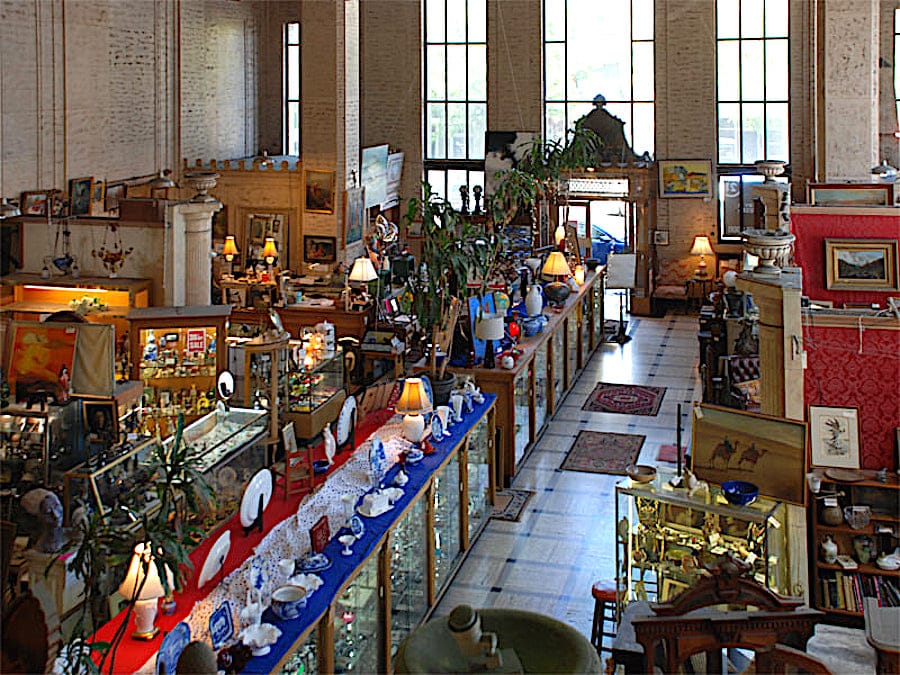
One of many local treasures worth checking out is Vintage Bank Antiques (101 Petaluma Blvd. N.), which is housed in a magnificent former bank (the 1926 American Trust Company), every inch of its three floors crowded with furniture, art, jewelry, and more. A couple of blocks away, look for something good to read in Copperfield’s Books (140 Kentucky Street), or browse through surrounding art galleries and boutiques.
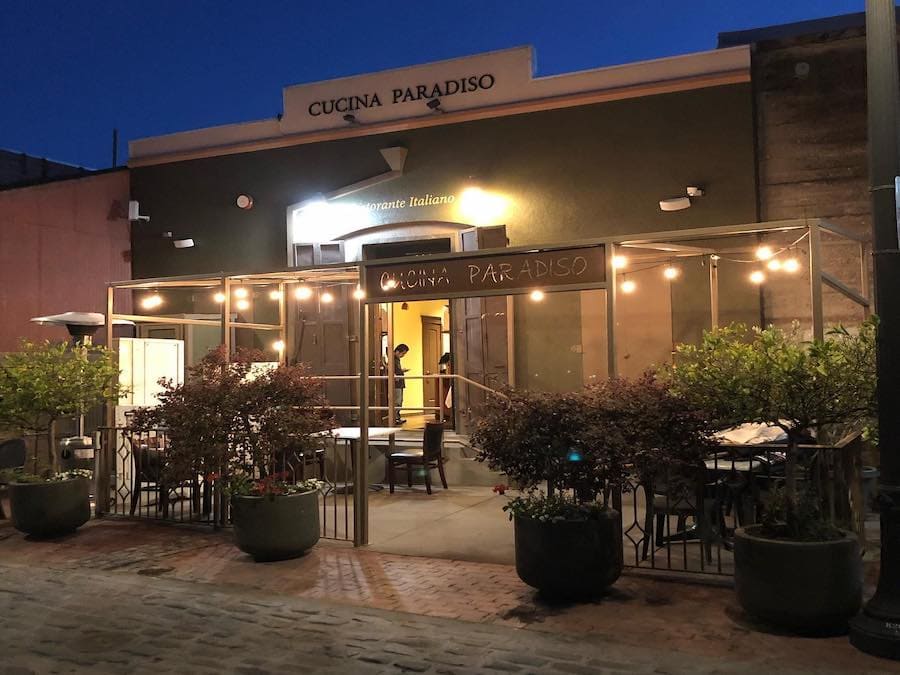
When it’s time for dinner, rest assured, there are wonderful restaurants here. Suggestions include Cucina Paradiso (114 Petaluma Blvd. North), which uses the freshest local ingredients to create wonderful Italian dishes, and features an extensive list of Italian and Sonoma County wines; and family-friendly Wishbone (841 Petaluma Blvd.), which serves “beautiful American food.” Wishbone’s owners raise Scottish Highland beef, procure produce from local Green String Farm, and bake all their own bread.
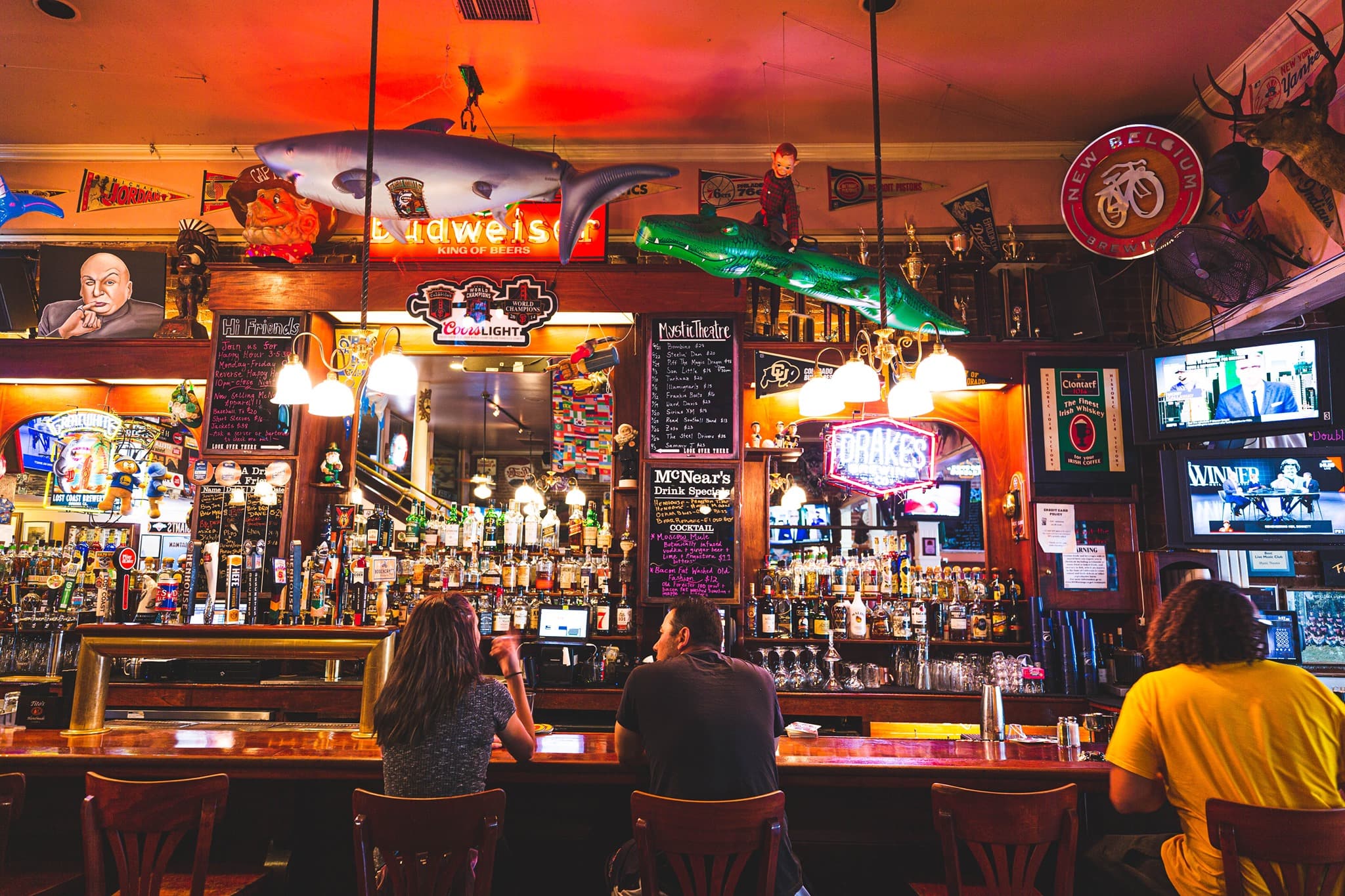
After dining, it’s fun to stroll along downtown’s streets, basking in the nighttime lights of the beautiful old buildings. Take in a music concert at the Mystic Theatre (23 Petaluma Blvd. North), grab a cocktail at the adjacent McNear’s Saloon, or simply sit in Putnam Plaza Park and watch the world go by.
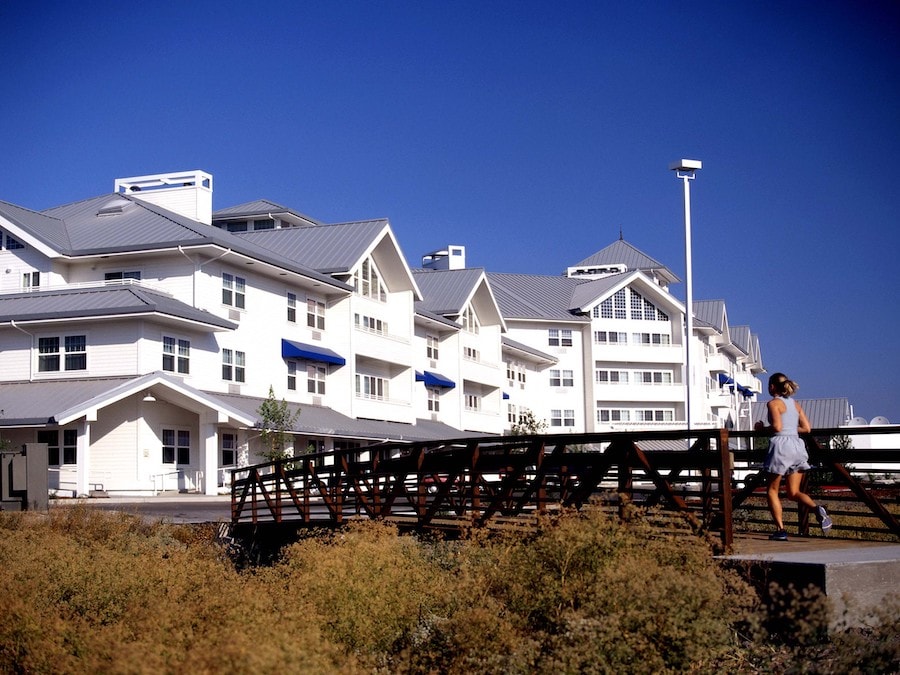
As for lodging, the handsome Sheraton Sonoma County-Petaluma (745 Baywood Drive) overlooks the Petaluma River and the marina, and has a heated lap pool, a fitness facility, a daily social hour, and an excellent restaurant.
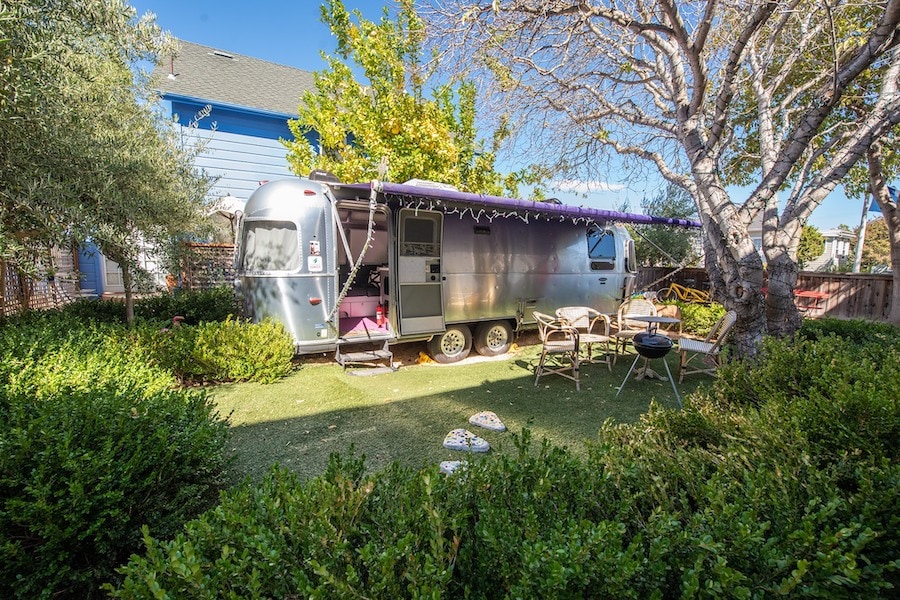
For a taste of Parisian kitsch in the middle of town, check into the Metro Hotel (508 Petaluma Blvd. South) for old-world charm—or ask to stay in a refurbished Airstream trailer. Situated on 70 beautiful rural acres just 34 miles from San Francisco, the San Francisco North/Petaluma KOA Campground (20 Rainsville Road) has sites for tents and RVs, as well as a large number of cabins in various price ranges.
Day Two
Discover the Sonoma Coast and the Redwoods
Start your day with a great Petaluma breakfast at Della Fattoria Bakery (141 Petaluma Blvd. North), housed in a former 1860s bakery. Try absolutely anything in the bakery case, or for a heartier start, tuck into the corned beef hash and eggs or a breakfast sandwich with a poached farm egg, cheddar cheese, ham, and mayo on fresh-made bread.
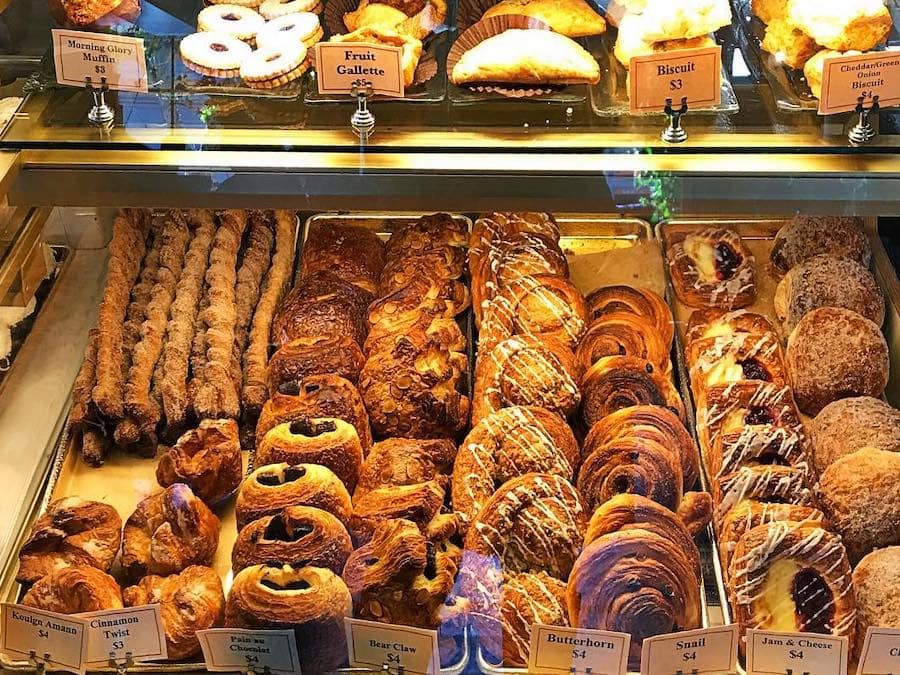
Then it’s off to western Sonoma County. Depart Petaluma by heading west on Bodega Avenue and onto Valley Ford Road. At Highway 1, head north.
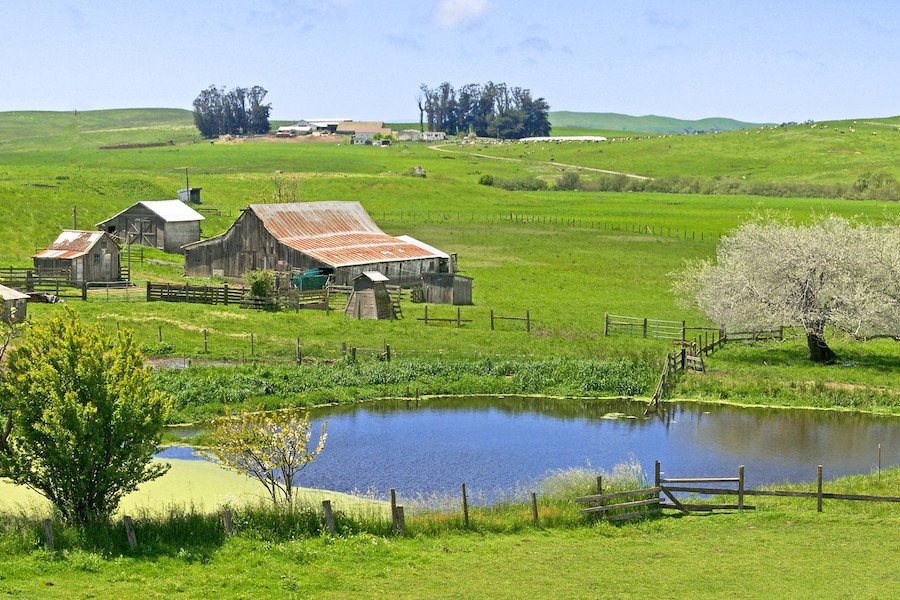
Soon you’ll enter Valley Ford, a charming country village that’s home to fewer than 150 people and is about six miles from the Pacific Ocean. In the mid-19th century it was a stop on the North Pacific Coast Railroad that connected Cazadero to the Sausalito ferry. Today its handsome old buildings are home to a handful of shops and restaurants.
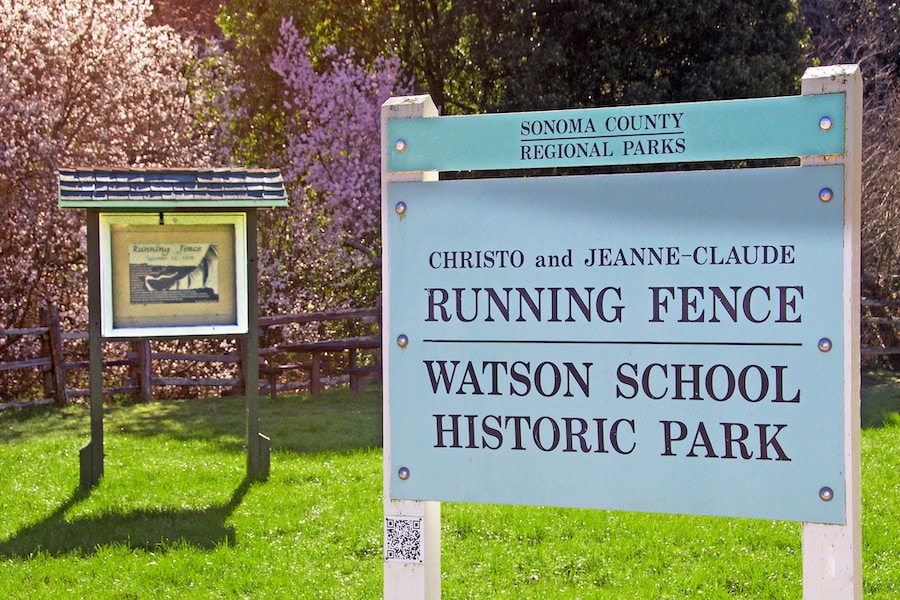
In 1976, one of the most controversial and famous art installations in history—Christo and Jeanne-Claude’s Running Fence—ran right through Valley Ford on its 24.5-mile journey from Highway 101 to Bodega Bay, where it disappeared into the ocean. The white-nylon Fence brought international journalists, environmental protestors, passionate art-lovers and curious gawkers to Valley Ford. While you’re here you can pay a symbolic visit to the Fence at Sonoma County Historic Landmark #24 (14459 Valley Ford Road). You’ll find a bronze plaque commemorating the Running Fence, as well as one of the poles used in the installation.
Continue heading north on Highway 1. In a few miles, turn right onto Bodega Highway and a mile or so later you’ll enter the charming town of Bodega, where Alfred Hitchcock’s movie, The Birds, was filmed.
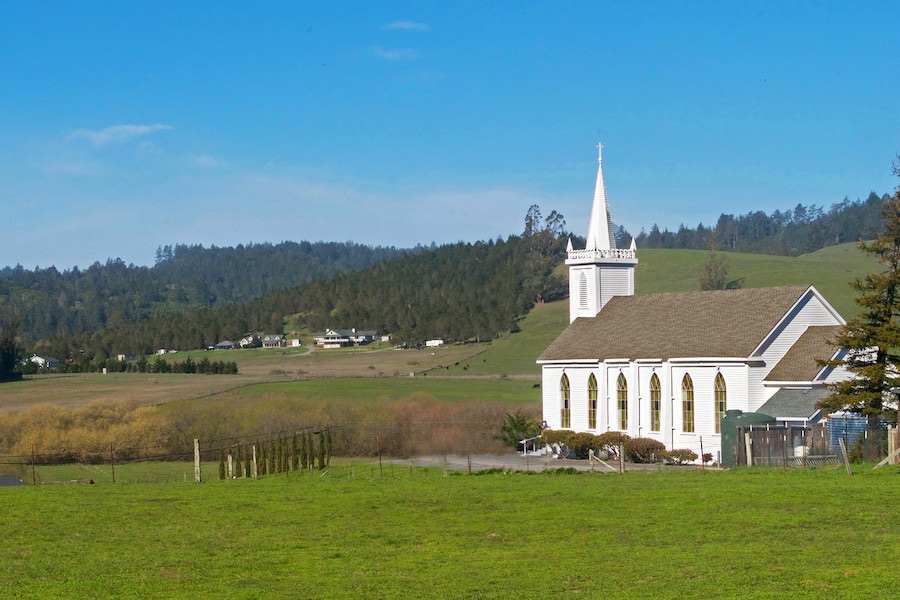
Stroll through town, spotting movie landmarks or visiting galleries and antique shops. Just off the highway (up Bodega Lane), you’ll see the St. Teresa of Avila Church, made famous by a 1953 Ansel Adams photograph and later glimpsed briefly on film during The Birds. You’ll also find the old Potter School House, the setting for much on-screen running, screaming, and pecking during The Birds.
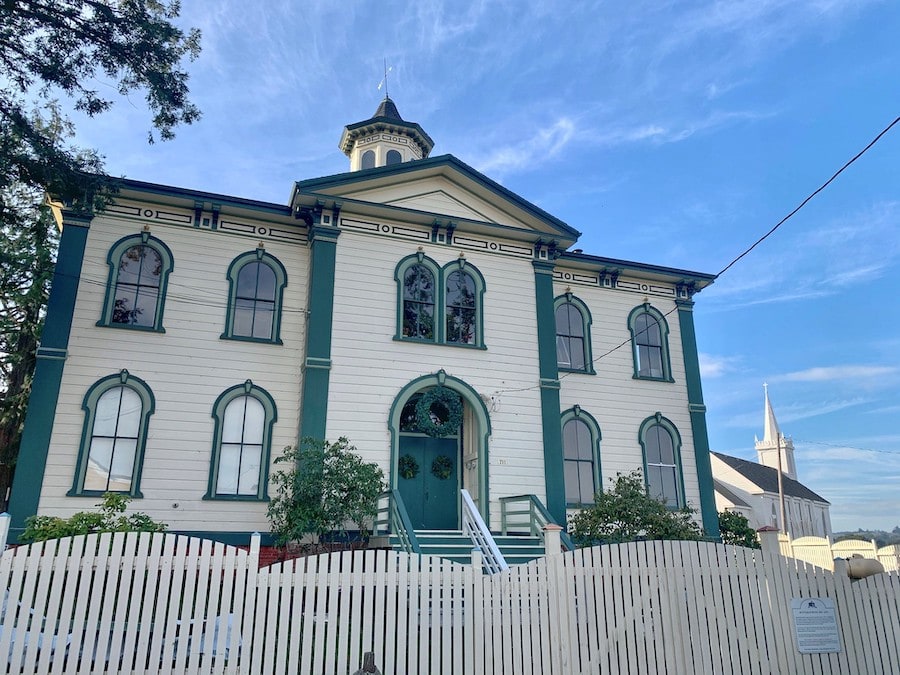
The two buildings also prettied up the opening credits of Fred Astaire and Petula Clark’s 1968 musical Finian’s Rainbow. Snap as many pictures as you’d like in front of both buildings, but do note that the Potter School House is now a private residence.
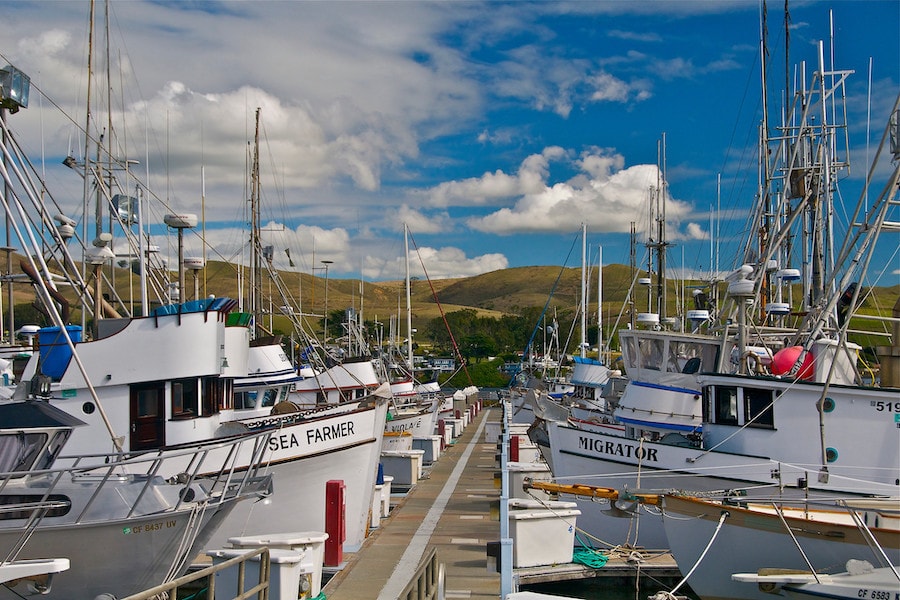
When you’re ready, get back on Highway 1 North. At Bodega Bay, turn left onto Eastshore Road, right on Bay Flat, and then veer left onto Westshore. The road wraps around the bay and brings you to lively Spud Point Marina, where you can find whale-watching cruises, fishing charters and other open-water adventures.
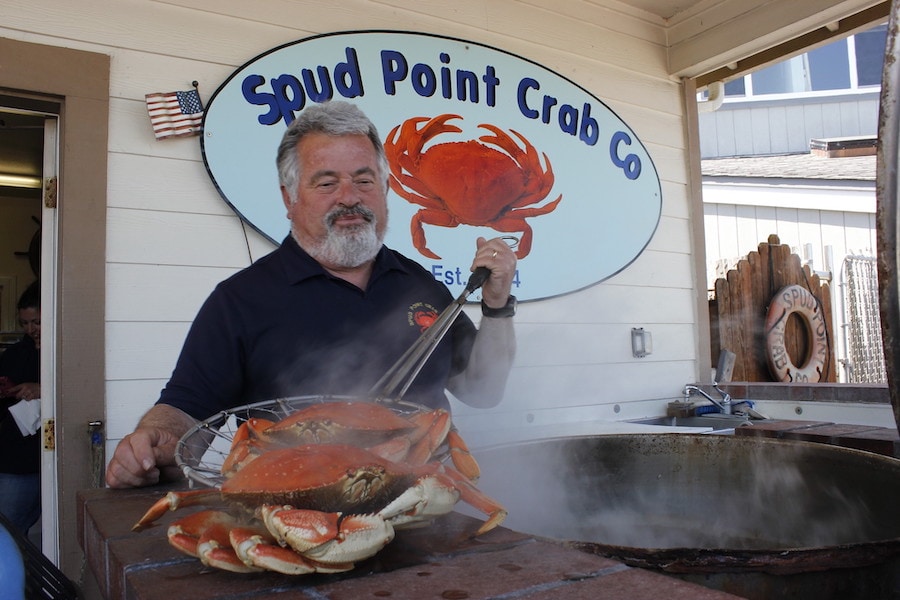
It’s also home to Spud Point Crab Company’s Crab Shack (1860 Westshore Road, Bodega Bay), where you can get a generous fresh crab sandwich on sourdough and other seafood goodies, and then devour everything outside at a picnic table overlooking the fishing boats. Divine.
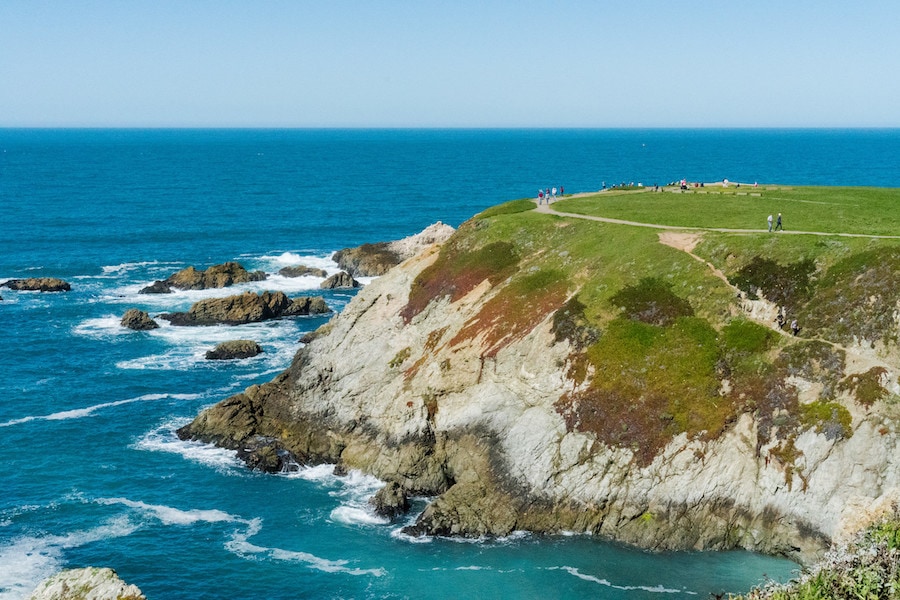
After eating (or you can take your picnic with you) continue along Westshore Road, and drive to the top of the Bodega Head peninsula for stunning bluff top views, scenic trails, and beach access.
When you’re ready to go on, go back to Highway 1 and continue north along some of the world’s most beautiful coastal scenery. You’re driving beside the 17-mile-long Sonoma Coast State Park, which runs from Bodega Head to about four miles north of the Russian River. If you feel like it, stop at a beach that appeals to you to enjoy the action of waves, go tidepooling, or during the winter months, possibly spot a passing whale.
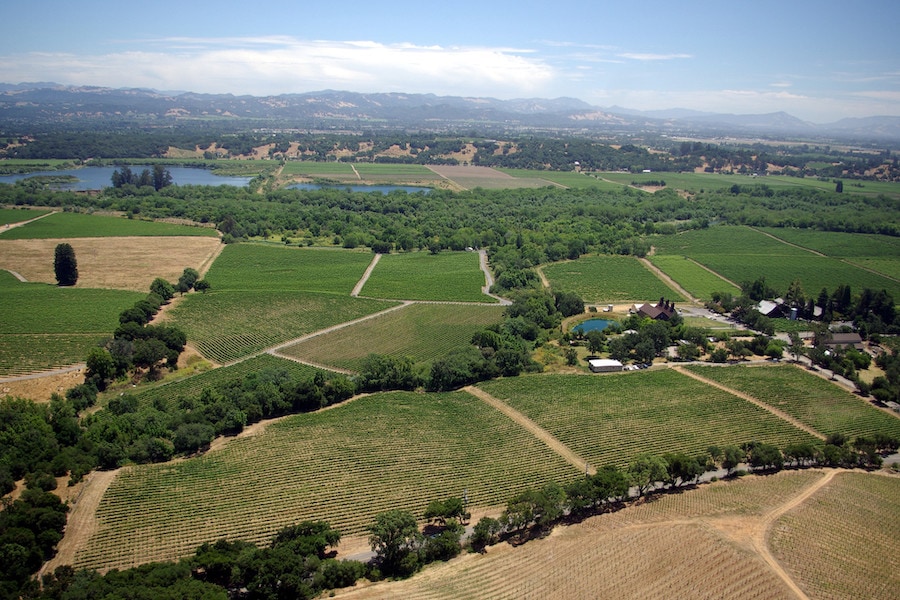
Continue on Highway 1 until you reach Highway 116, where the Russian River enters the sea. Turn right and enjoy driving through the Russian River Valley. Many award-winning vineyards and wineries—from tiny, boutique operations to large, commercial producers—are found in this region.
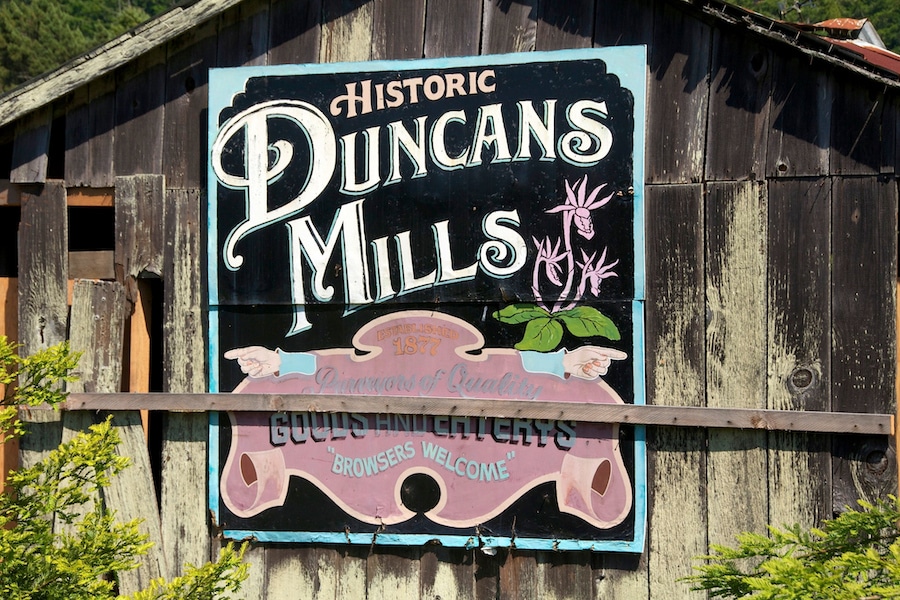
A few miles along Highway 116, you’ll enter the historic town of Duncans Mills, named for two brothers, Samuel and Alexander Duncan, who established a lumber mill in the early 1870s. Today Duncans Mills boasts a population of fewer than 200 people, and offers a unique mixture of antique and specialty shops, restaurants, and galleries.
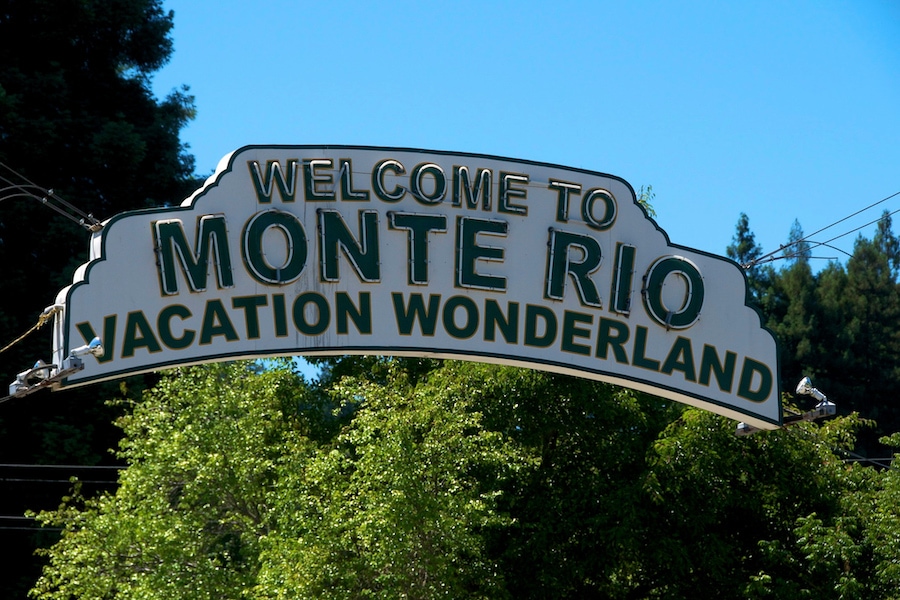
A bit further east along the highway is tiny Monte Rio, the setting for the 1942 musical Holiday Inn, which starred Bing Crosby and Fred Astaire. With its laid-back atmosphere and a sandy beach located on a particularly calm portion of the river— not to mention a WWII Quonset hut that’s currently being renovated as a movie theater and community center—Monte Rio has long been a favorite family vacation spot.
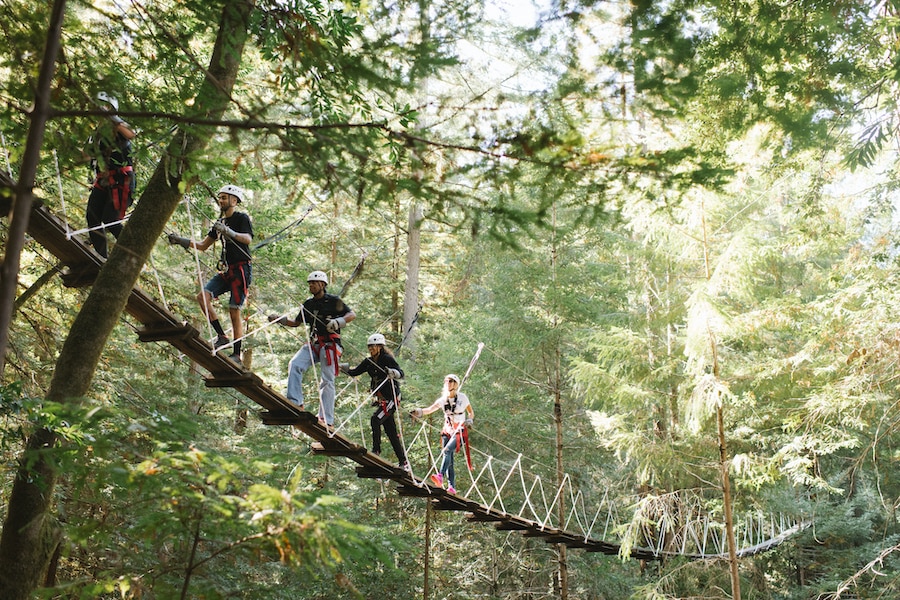
Turn right onto Bohemian Highway, and you’ll soon arrive at Sonoma Canopy Tours (6250 Bohemian Highway, Occidental), where you can take a thrilling zip line adventure through an old-growth redwood forest filled with trees more than 700 years old.
Then head back to Highway 116 and continue on to the river town of Guerneville, a favorite getaway destination for generations. It’s a small (but not tiny) town, filled with shops and restaurants.
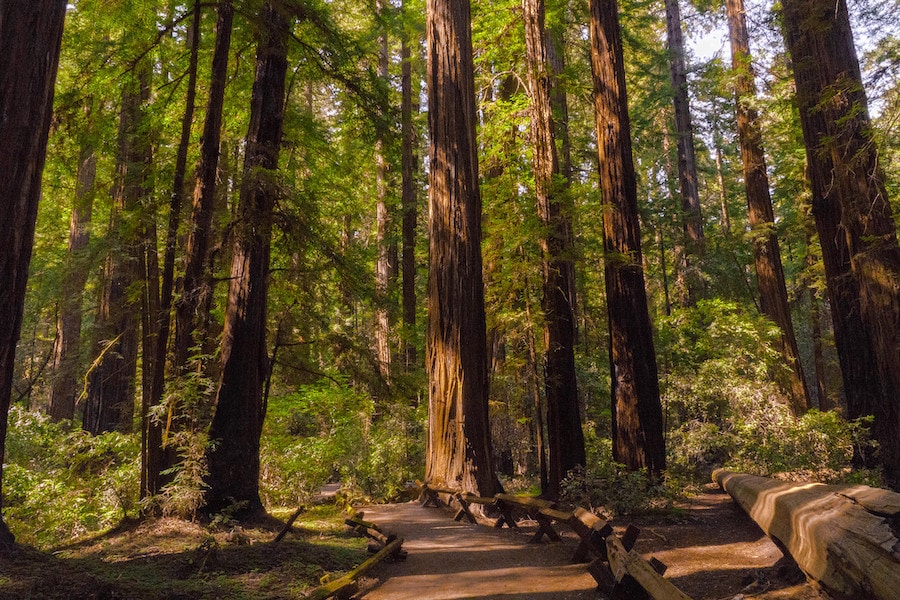
At the far edge of town, turn left on Armstrong Woods Road and drive to Armstrong Redwoods State Natural Reserve (17000 Armstrong Woods Road), a living reminder of the magnificent redwood forest that once covered this area. Park outside the entrance and walk into the park, where you can hike trails surrounded by redwood trees.
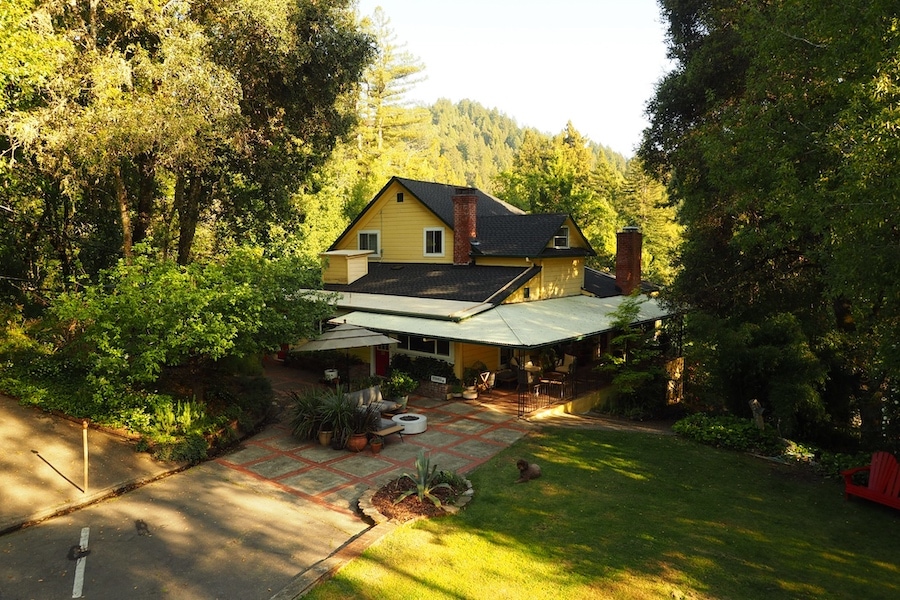
By now it’s time to start thinking about checking into your lodging, maybe grabbing a quick nap, and heading off to dinner. Mine + Farm, the Inn at Guerneville (12850 River Road) is a fully-restored 1906 farmhouse with an organic garden. Back in Duncans Mills, the fun, friendly Casini Ranch Family Campground (22855 Moscow Road) offers campsites on the river.
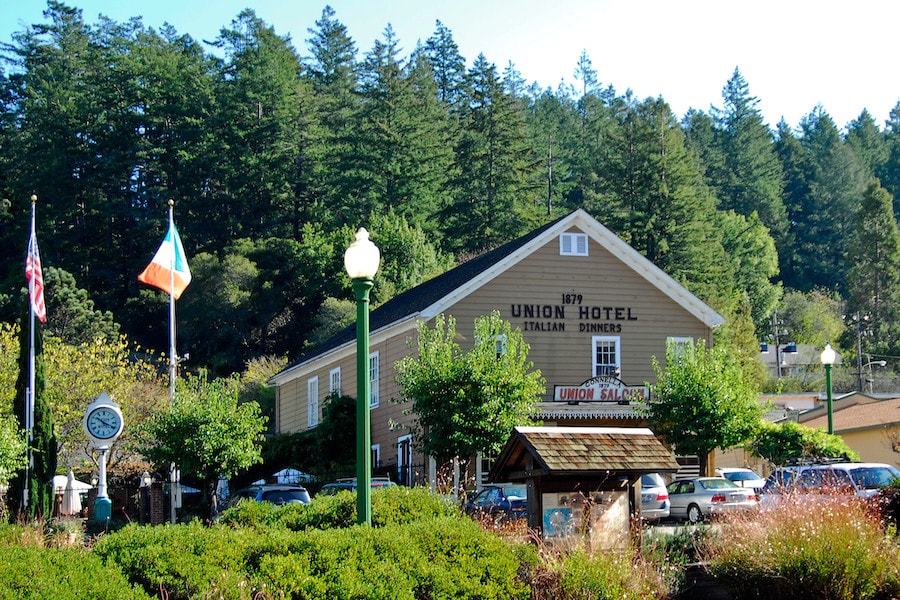
For dinner, head back to Occidental for old-fashioned Italian family-style dining at either Negri’s Italian Dinners & Joe’s Bar (3700 Bohemian Highway) or the Union Hotel Restaurant (, 3731 Main St.) Or, you’ll find more choices here.
Frankly, two days aren’t nearly enough to delve into Sonoma Wine Country’s gems—hidden or otherwise. Consider adding another day or two, and keep in mind that some of Sonoma County’s best secrets are found in its 50-plus regional and state parks. For instance, you can discover California history at Fort Ross State Historic Park or Jack London State Historic Park, or you can traipse among the planets at a model of the solar system within Sugarloaf State Park.
Written by Sonoma Insider Suzie Rodriguez
THIS IS WINE COUNTRY.
Share your experience using #SonomaCounty or #LifeOpensUp
